Central America’s narrow isthmus bridging North and South America represents only 0.1% of the Earth’s landmass, yet it contains an astonishing 7% of the planet’s biodiversity. This remarkable concentration of natural wealth has made the region a pioneer in ecotourism, developing sustainable lodging options that allow visitors to experience pristine environments while contributing to their conservation. From cloud forests to coral reefs, and from volcanic landscapes to mangrove estuaries, these countries offer unparalleled natural experiences.
Here is a list of 15 exceptional eco-lodges across Central America where sustainability meets luxury and an authentic connection with nature.
Lapa Rios Lodge
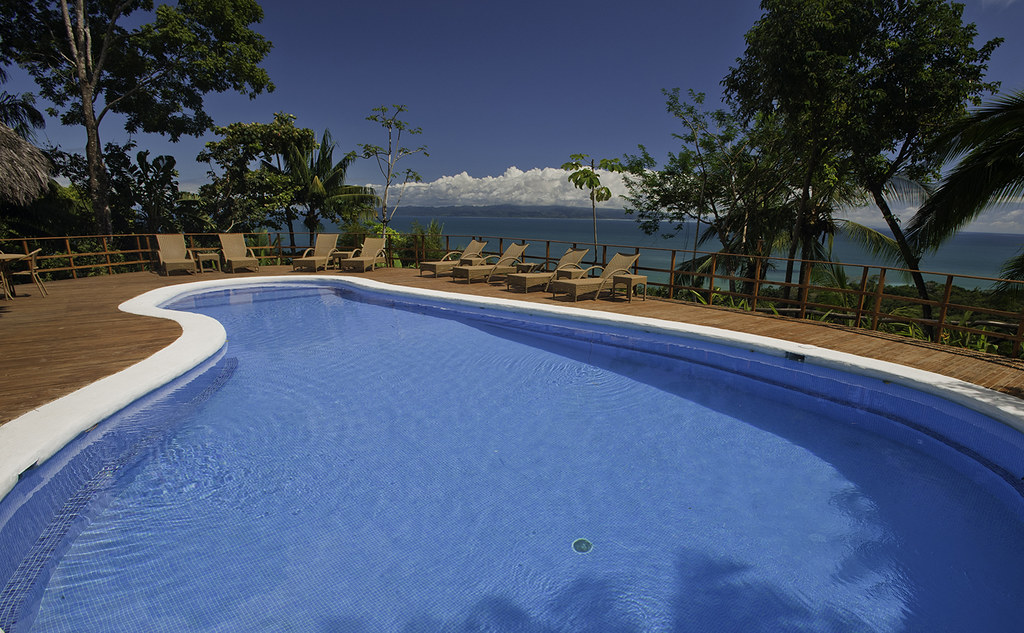
Perched on a ridge overlooking where the Golfo Dulce meets the Pacific Ocean, this pioneering eco-lodge protects 1,000 acres of primary and secondary rainforest in Costa Rica’s Osa Peninsula. The property features 17 private bungalows with thatched roofs, screened walls, and spacious decks that bring the sounds and sights of the jungle directly to guests.
Monkeys frequently pass through the property, while scarlet macaws—the lodge’s namesake—add brilliant flashes of color to the green canopy. The owners established a conservation covenant ensuring the property will remain protected forever, demonstrating their commitment to preserving one of Earth’s most biodiverse regions.
Turtle Inn
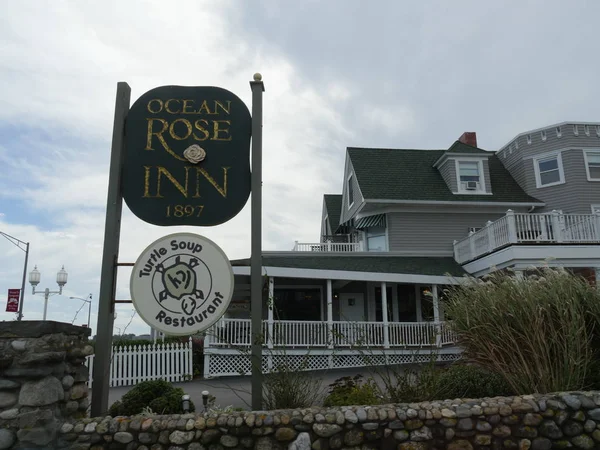
This Francis Ford Coppola-owned retreat along Belize’s southern coast combines environmental awareness with refined luxury. The beachfront property features Balinese-inspired cottages built from sustainable materials that harmoniously blend with their tropical surroundings.
The resort maintains extensive organic gardens supplying fresh produce to its restaurants while supporting local conservation efforts focused on preserving marine ecosystems. Guests can snorkel the nearby Belize Barrier Reef—the second-largest coral reef system in the world—or participate in seasonal sea turtle protection programs that give the property its name.
Like Travel Pug’s content? Follow us on MSN.
Finca Rosa Blanca
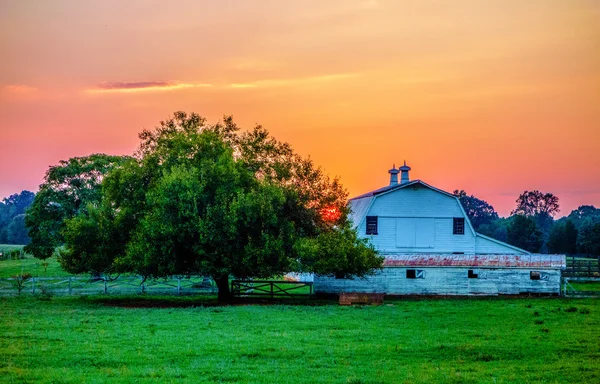
Situated in the highlands above San José, Costa Rica, this coffee plantation-turned-boutique hotel demonstrates how agriculture and conservation can work hand-in-hand. The property produces organic, shade-grown coffee while maintaining forest corridors that support remarkable bird diversity in the central highlands.
The main building showcases innovative architectural elements, including arches, towers, and curving staircases constructed using sustainable materials and techniques. Solar panels and extensive recycling systems minimize environmental impact, while guided tours educate visitors about sustainable coffee production methods that protect watershed areas and provide habitat for native species.
Jicaro Island Lodge
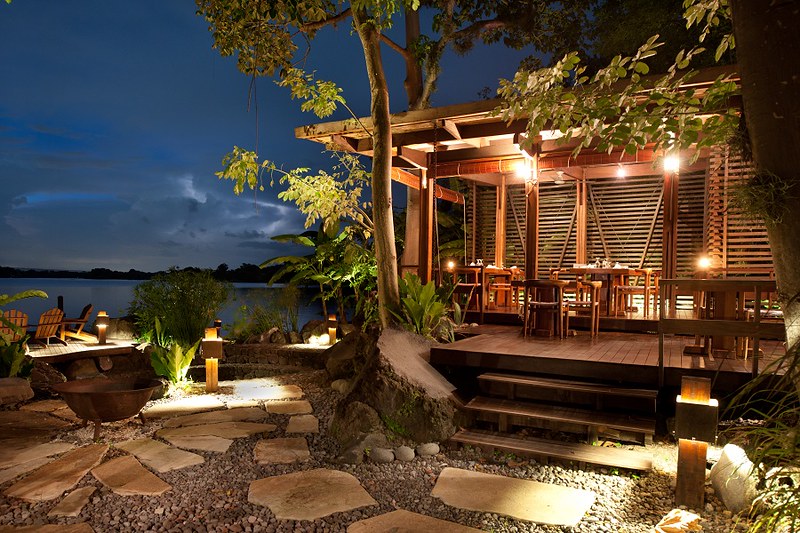
Occupying a private islet in Lake Nicaragua, this intimate retreat was constructed entirely from trees downed by Hurricane Felix in 2007. The nine casitas stand on stilts among tropical foliage, offering views of Mombacho Volcano across the water.
The lodge operates with comprehensive sustainability practices, including rainwater collection, solar water heating, and local food sourcing that supports nearby communities. Despite its secluded feel, the property sits just a short boat ride from the colonial city of Granada, allowing guests to combine cultural experiences with nature-focused activities like kayaking through the islets and birdwatching in this freshwater archipelago.
The Lodge at Chaa Creek
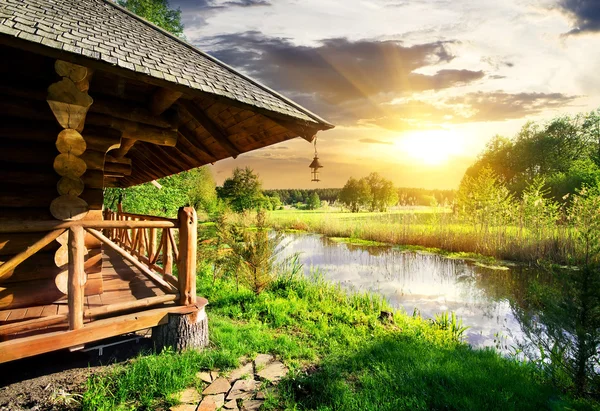
Nestled in a private nature reserve bordering the Macal River in western Belize, this eco-pioneer began as a small farm in the 1970s. The property has evolved into a conservation success story while maintaining its commitment to sustainable practices. Cottages feature traditional thatched roofs and verandas overlooking the jungle, where howler monkeys serve as natural alarm clocks.
The lodge dedicates 10% of all accommodation revenue to environmental and community projects through its “Chaa Creek Cares” program. Their natural history center and butterfly farm offer educational opportunities about the region’s ecology and Maya heritage that once flourished in these forests.
Like Travel Pug’s content? Follow us on MSN.
Morgan’s Rock Hacienda
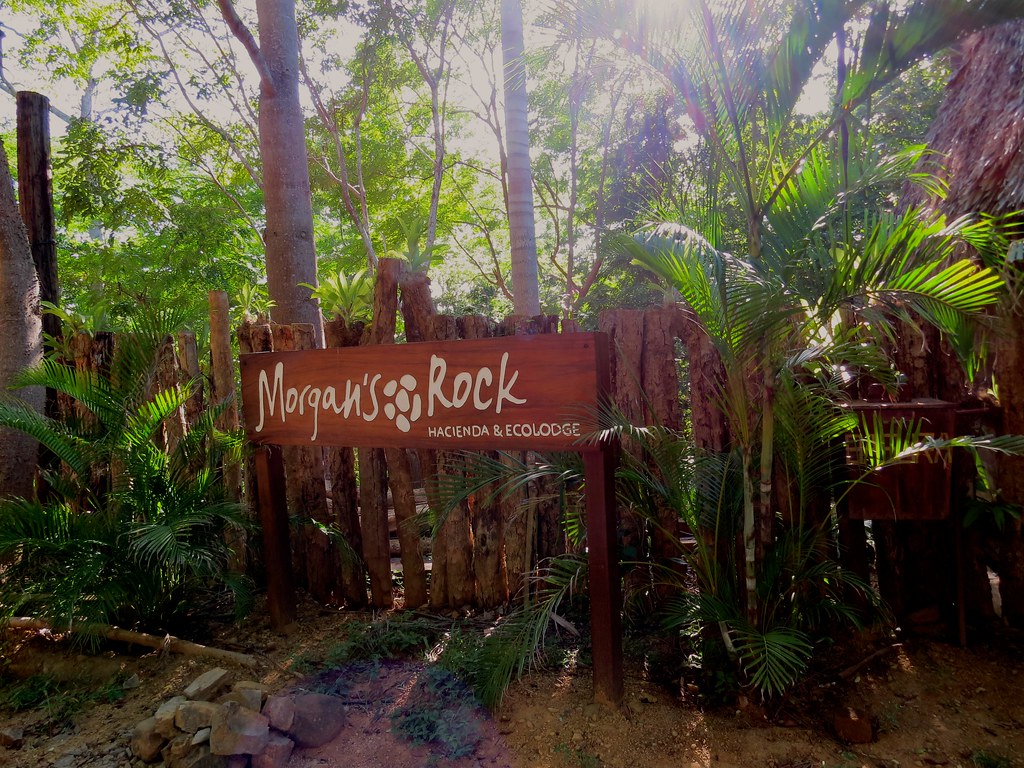
This Nicaraguan eco-lodge occupies 4,000 acres of protected forest and sustainable farmland overlooking a private beach along the Pacific coast. Fifteen bungalows connected by suspension bridges blend seamlessly into the forest canopy, designed to maximize natural ventilation without air conditioning.
The property operates a substantial reforestation program and maintains its organic farm where guests can collect eggs and milk cows during early morning farm tours. The beaches host nesting sea turtles, while the estuary system provides habitat for numerous bird species and supports sustainable fishing practices that supply the lodge’s restaurant.
Pacuare Lodge
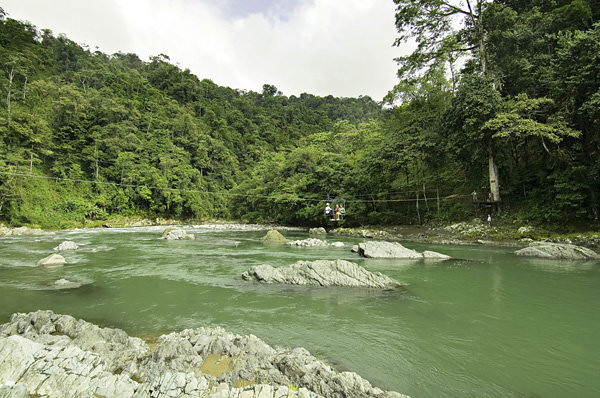
Accessible only by white-water rafting or hiking through the rainforest, this remote Costa Rican lodge sits alongside the Pacuare River, renowned for its pristine waters and exceptional biodiversity. The property’s suites and villas were built without cutting a single tree, using lumber from reforestation projects elsewhere in the country.
Candlelight and lanterns replace electric lighting in keeping with the jungle immersion experience, while solar panels provide limited electricity for essential services. Guests can hike to nearby waterfalls, visit indigenous Cabécar communities, or simply enjoy the thundering river sounds from private decks suspended above the forest floor.
Hamanasi Adventure and Dive Resort
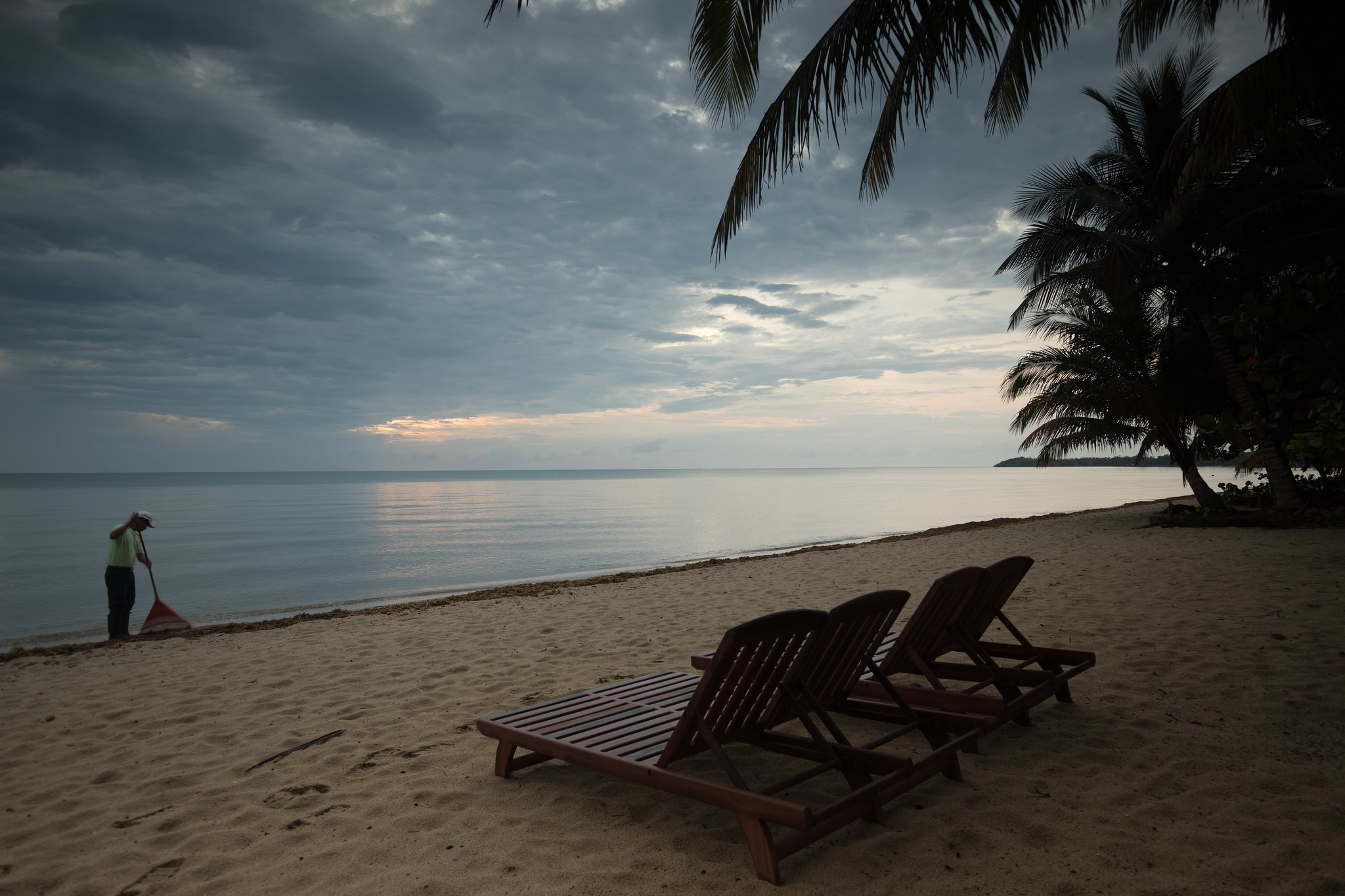
This Belizean eco-lodge uniquely combines reef and rainforest experiences from its location on the country’s central coast. The property protects significant beachfront habitat and operates with comprehensive sustainability systems, including rainwater collection and solar power generation.
The resort’s accommodations range from beachfront rooms to private treehouses tucked within the coastal forest. Hamanasi demonstrates exceptional commitment to community involvement, with extensive staff training programs and educational initiatives in local schools. The dive operation maintains strict environmental protocols while introducing guests to the spectacular marine ecosystems of the Belize Barrier Reef system.
Like Travel Pug’s content? Follow us on MSN.
Playa Viva
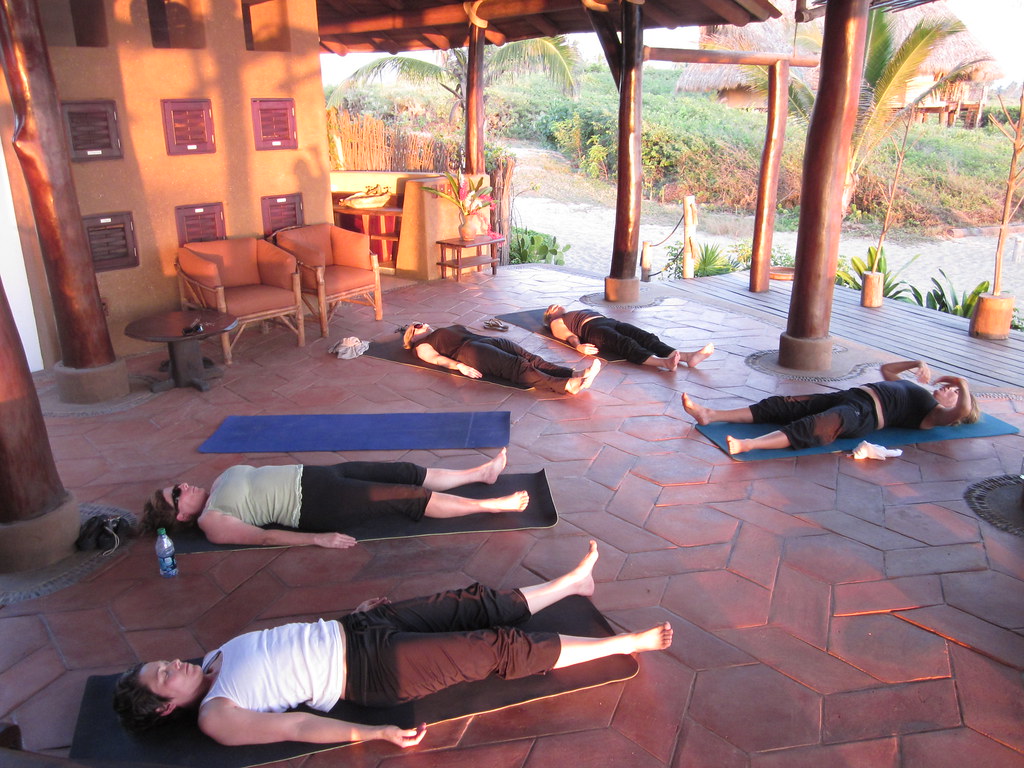
Located on Mexico’s Pacific coast in the state of Guerrero, this regenerative resort has transformed degraded coconut plantation land into a thriving coastal ecosystem. The property features treehouse-style accommodations designed by sustainable architecture firm Atelier Nomadic, elevated above a restored beach where thousands of sea turtles now nest annually.
The 200-acre property includes an organic farm, a coastal forest restoration project, and a protected estuary system providing habitat for numerous bird species. Guest participation in permaculture projects and turtle conservation efforts creates meaningful connections with both the natural environment and local communities dependent on these coastal resources.
Laguna Lodge
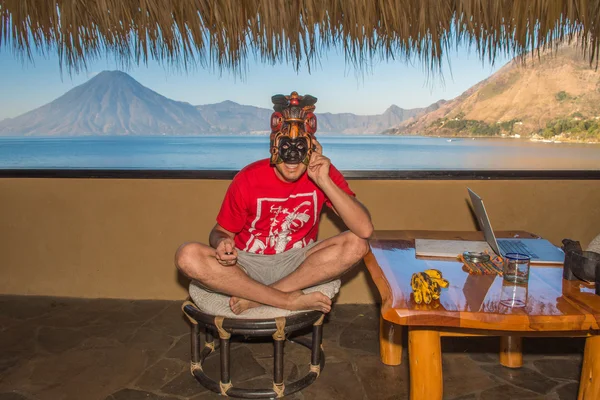
Perched on the shores of Guatemala’s Lake Atitlán, this solar-powered eco-lodge occupies a private nature reserve on the lake’s shore, accessible only by boat. The property features six suites constructed from volcanic stone, adobe, and palm, utilizing traditional building methods that harmonize with the dramatic landscape.
The reserve protects a rare section of primary tropical dry forest on the lake’s edge, with trails winding through habitat supporting numerous bird species and native mammals. Gourmet vegetarian cuisine showcases organic produce from the lodge’s gardens, while panoramic views of the lake and its surrounding volcanoes create an unforgettable setting for sustainable luxury.
Selva Negra Mountain Resort
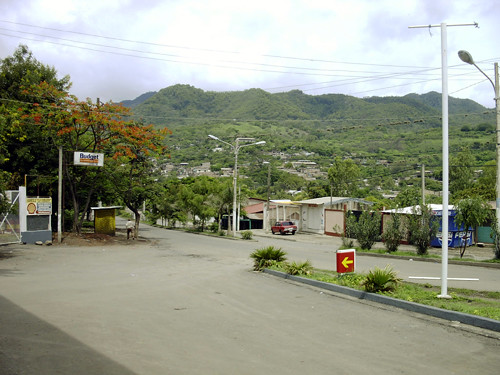
This historic property in Nicaragua’s northern highlands has operated as a working coffee farm for over 120 years while maintaining extensive cloud forest habitat. The German immigrant family that established the plantation created a model of sustainable agriculture that continues today, producing organic coffee under native shade trees that support remarkable bird diversity.
Accommodations range from historic chalets to bungalows nestled along forest trails where quetzals and toucans make regular appearances. The property maintains its own dairy and vegetable production, generating much of the food served in its restaurant while employing numerous local families through its various operations.
Like Travel Pug’s content? Follow us on MSN.
Cotton Tree Lodge
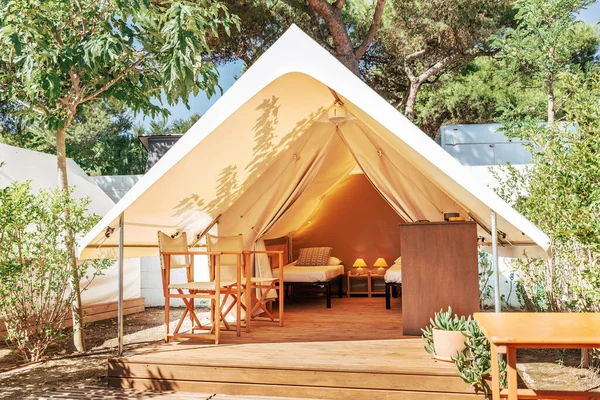
Located in southern Belize near the Guatemala border, this riverside lodge connects guests with both the natural environment and Maya cultural heritage. The property’s cabanas feature traditional thatched roofs and local hardwood construction, perched along the banks of the Moho River that provides transportation access to nearby villages.
The lodge maintains organic gardens and partners with local organic cacao growers, offering chocolate-making workshops using traditional methods. Conservation efforts focus on protecting river habitats while supporting community initiatives that benefit nearby villages through sustainable tourism opportunities that complement rather than replace traditional lifeways.
Isla Palenque
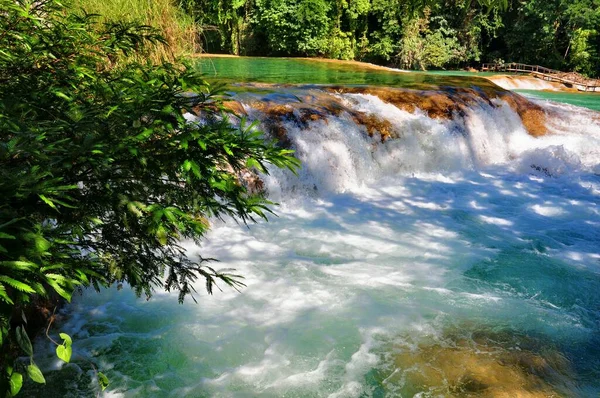
Occupying a 400-acre private island in Panama’s Gulf of Chiriquí, this exclusive eco-retreat combines pristine beaches, tropical forests, and archaeological sites from pre-Columbian indigenous settlements. The property features just eight beachfront casitas and one villa, minimizing its environmental footprint while maximizing privacy and immersion in the natural surroundings.
Sustainable design elements include reclaimed wood construction, passive cooling systems, and solar power generation that meets much of the resort’s energy needs. Seven distinct beaches and miles of nature trails allow guests to explore diverse ecosystems while seasonal whale-watching opportunities bring marine conservation aspects to the forefront.
Black Rock Lodge
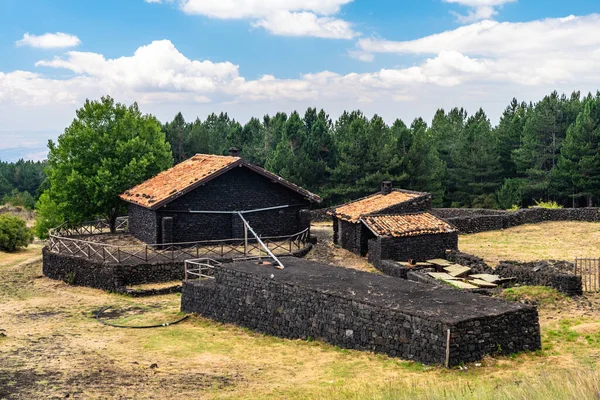
Nestled in a private reserve overlooking Belize’s Macal River Valley, this eco-lodge harnesses hydroelectric power from a nearby stream to supply most of its electricity needs. The property’s cabins feature breathtaking views of the forested canyon below, with design elements emphasizing natural ventilation and locally sourced materials.
Extensive trail systems provide access to pristine forest habitats where specialists guide birdwatching excursions, spotting numerous tropical species. The lodge maintains organic gardens supplying fresh produce while participating in regional conservation initiatives focused on protecting the connected forest corridors essential for wildlife movement throughout western Belize.
Like Travel Pug’s content? Follow us on MSN.
El Remanso Lodge
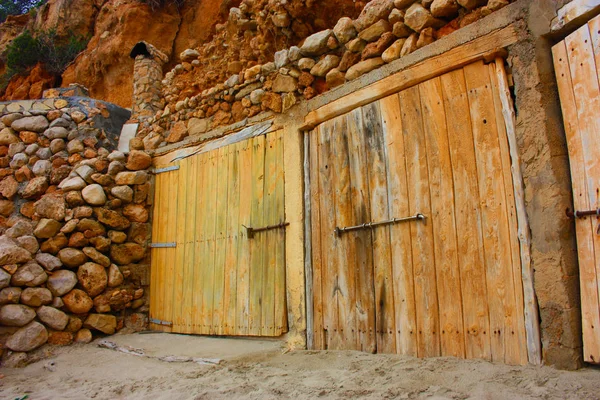
Set in the hills above Costa Rica’s Osa Peninsula, this family-owned eco-lodge operates entirely on renewable energy within its 185-acre private reserve. The property borders Corcovado National Park, creating an extended wildlife corridor protecting crucial habitat for endangered species, including jaguars, tapirs, and scarlet macaws.
Cabins and villas blend into the forest canopy, designed to maximize natural cooling while providing stunning ocean views from their elevated position. The owners maintain a clear conservation vision, participating in regional initiatives to protect and expand habitat connectivity throughout this globally significant biodiversity hotspot on Costa Rica’s remote southern Pacific coast.
Sustainable Tourism Legacy
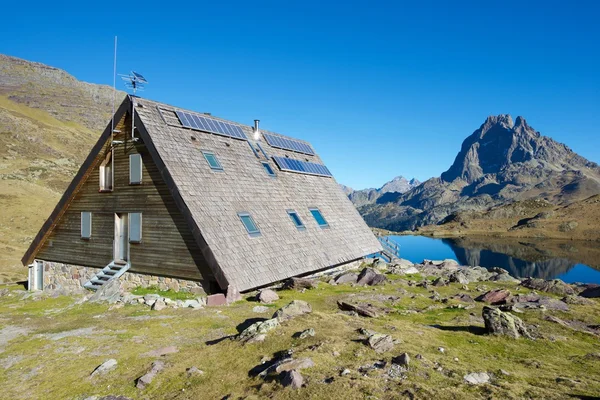
These fifteen exceptional properties represent the cutting edge of responsible tourism development in Central America, where environmental protection, social responsibility, and authentic guest experiences converge. By choosing accommodations that prioritize sustainability without sacrificing comfort, travelers contribute directly to conservation efforts and community development throughout the region.
The pioneering vision demonstrated by these eco-lodges continues to reshape tourism across Central America, creating models for harmonious interaction between visitors and some of the most ecologically important landscapes remaining on our planet.
More from Travel Pug

- Cities Growing so Fast You Won’t Recognize Them in 10 Years
- 13 Destinations Where Tourists Regularly Regret Their Trip
- 16 U.S. Cities That Are Quietly Becoming Travel Hotspots
- Where to Travel If You Love Long Bus Rides and Daydreams
- 20 Cities Perfect for Solo Travelers Who Crave Adventure & Culture
Like Travel Pug’s content? Follow us on MSN.
